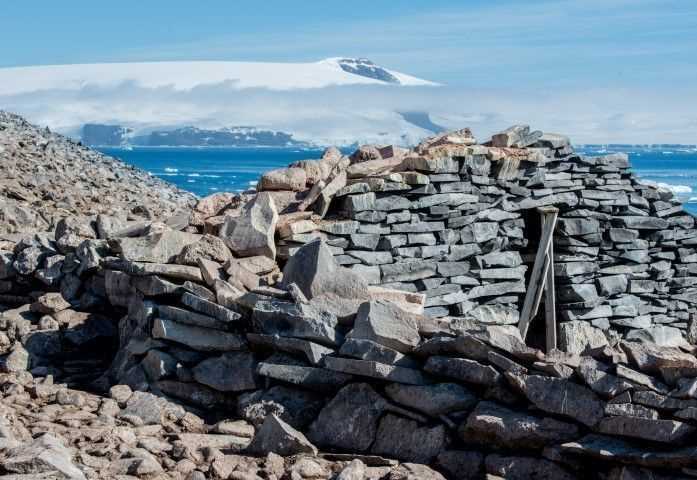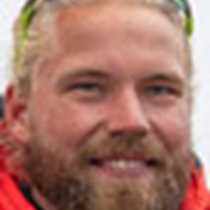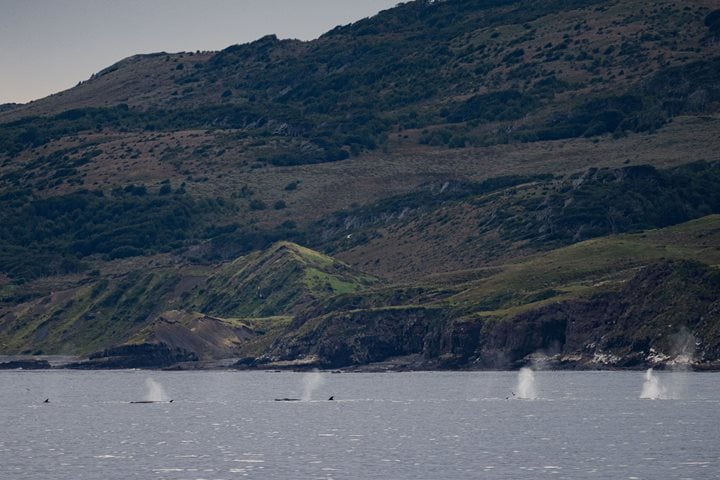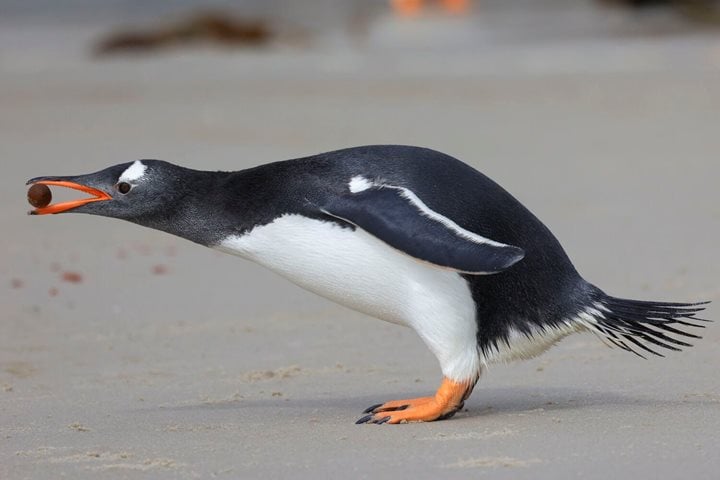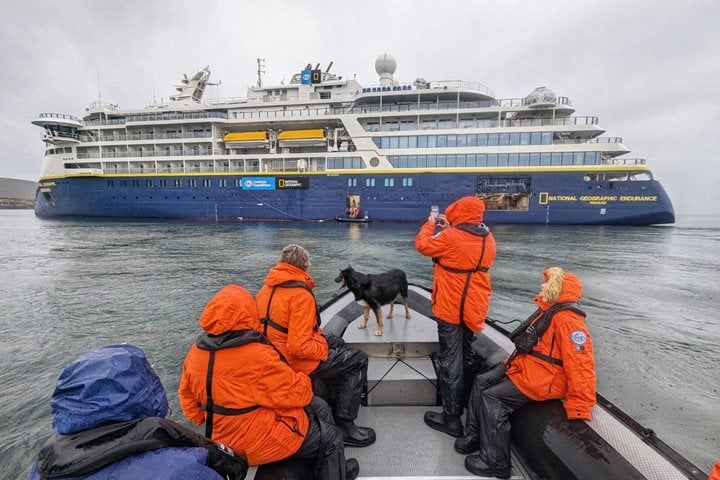Today was our final day of expedition here at the Antarctic Peninsula. We were still exploring territory surrounding the Antarctic Sound. This water body extends approximately 30 nautical miles long and between seven and 12 nautical miles wide, separating the Joinville Island group from the peninsula.
We landed on Paulet Island in the morning, one first discovered by the British Antarctic expedition under James Clark Ross (1839-1843), which he named in honor of Admiral Lord George Paulet of the Royal British Navy. This volcanic island attracts more than a hundred thousand pairs of Adélie penguins on an annual basis, though Paulet Island is certainly better known for the downing of Antarctic in 1903, the remnants of which tell of a scientific expedition gone awry.
The Swedish-led vessel was crushed and sunk by ice off the coast of Paulet Island while on its way to pick up expedition leader Otto Nordenskiöld and his crew. The scientists with him had spent that winter on Snowhill Island collecting a massive number of rock samples, fossils, and other important specimens and data for research. The group of 20 men from the wrecked Antarctic rowed to Paulet Island in their lifeboats and built a stone hut for shelter. They subsisted primarily on penguin, and all but one survived. The crew did manage to outlast the harsh Antarctic winter and were later rescued by the Argentinian Navy.
Around lunchtime, whale expert Conor Ryan announced that there was spectacular whale activity happening out in the Antarctic Sound. Guests could see at least a dozen minke whales, a big group of small type-b killer whales, and fin whales—all together and along both the bridge and the ship’s bow.
The small type-b killer whale is known for hunting penguins, but with no penguins in the water, and the whole group staying that close to other whales for as long as they did, is it possible these orcas were feeding on silver fish? It’s difficult to say at a distance, and the dark waters of the Arctic don’t let off much to its mysterious subsurface. Still, it was an absolute treat to see these three species interact for such a long duration!

